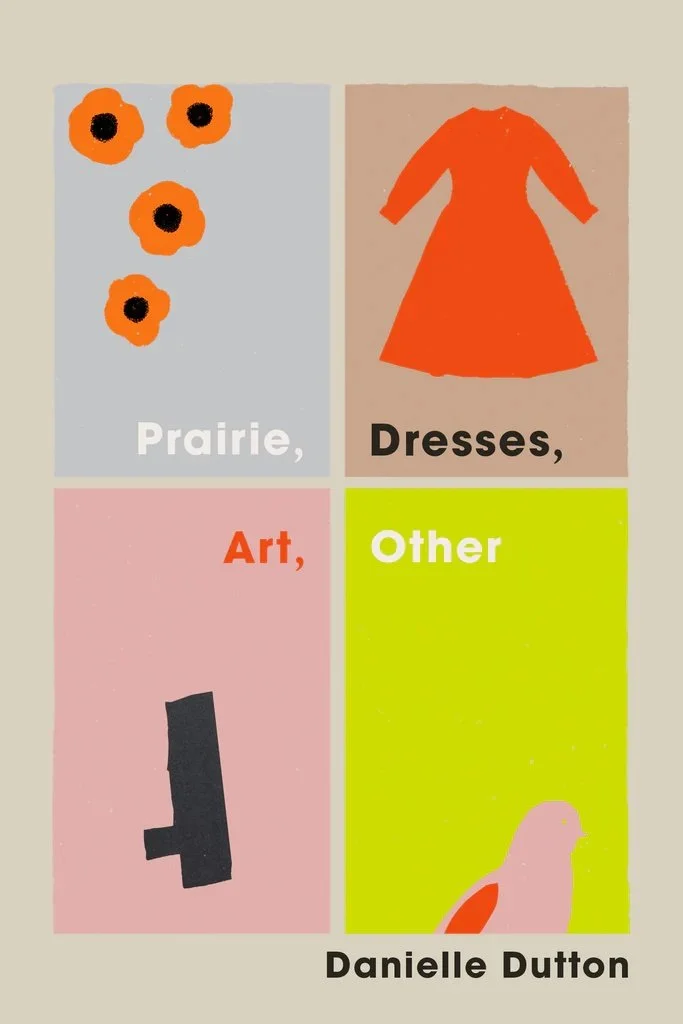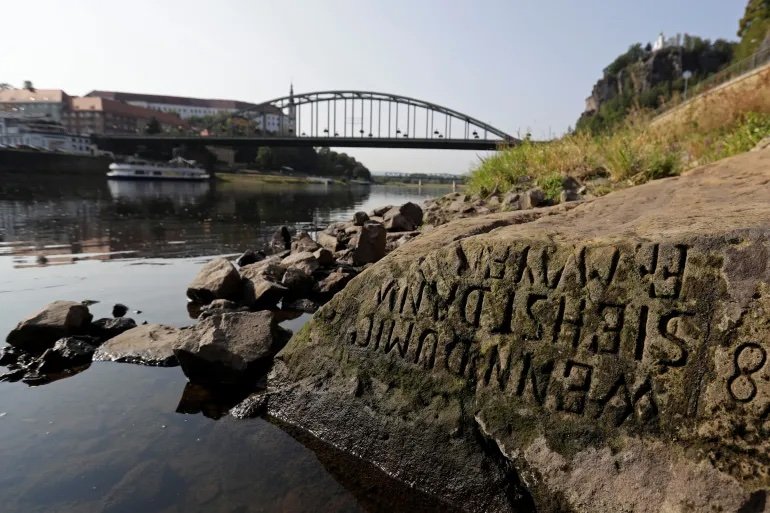Danielle Dutton's PRAIRIE, DRESSES, ART, OTHER (Fiction Review)
Danielle Dutton’s hybrid collection Prairie, Dresses, Art, Other twice references literary theorist Viktor Shklovsky on the way art offers a corrective to the deadening effect of growing accustomed to so many things in life, from the joyous to the terrible. “Art exists that one may recover the sensation of life,” Shklovsky says. “It exists to make one feel things, to make the stone stony.”
A reader needn’t look far to find a stone or two in PDAO. It’s a book alive to the natural world, “sweet potato flowers like a million wagging moons,” “plants shaped like coral but bright green,” “Royal catchfly. Milkvetch. Compass plant.” Dutton is out to give us the American prairie, or what remains of it; climate catastrophe is never far in these pages, the first piece in the collection being set during the hottest week in recorded history, one whose drought conditions have exposed a hunger stone engraved during a famine four hundred years ago, which reads, “If you see me, weep.”
A hunger stone in the Elbe River, Czech Republic, in 2018. Photo courtesy of Reuters/David W Cerny.
There’s no denying the presence of the terrible in PDAO, but the joyous is there, too, in the figure of the son, who recurs across several of the book’s experimental stories. He’s never named, never guaranteed to be the same character, but he’s delightfully childlike in all his appearances: brimming with scientific facts about black holes, and fascinated with pseudo-scientific cryptids; a “little eel” of a swimmer; insistent, in a four-year-old guise, that he’s actually a dog, that he’s never not been a dog.
The son is also present in “My Wonderful Description of Flowers,” the book’s most widely-known story, first published two years ago in the New Yorker. It’s also the collection’s most gripping piece, an appeal that stems from its overall atmosphere of dread — the son may be a character in the story, but he doesn’t ever appear on the page, missing along with the husband in a way the mother-narrator can’t quite explain, but which might be tied to the pale young man she smiled at on the train, who spent the rest of the ride with his eyes fixed on her dress, muttering “So nice, so nice, so nice.” Or to whoever won’t stop messaging her, claiming a past acquaintance she can’t recall, who’s growing increasingly demanding about being provided her exact location. Or maybe to another man on the train, a Trump figure in a suit, brandishing a golden credit card, who grabs her arm and aggressively teases that she’s his wife, the rest of the train turning away. So much menace in the world. But also within, the narrator failing to investigate further after her attempts to reach her husband are met with silence. Instead of returning home, she drifts along with a crowd of colleagues on their way to a bar, and then, as if she has no control, onto another train, to the end of the line, where she’s met with “the prairie at night,” all “darkness now and millions of flowers like stars.”
The ever-present danger to women in the world is there in the book’s second section, “Dresses,” too. It’s less prominent here, one thread in the single piece that comprises this section, a story that works on some level as a literary guessing game, made up of short excerpts from works spanning the high-low gamut, from Virginia Woolf to the Sweet Valley High books. It’s a sort of analog BuzzFeed quiz, complete with cheat sheet at the end.
This sense of play is a flip side to the book’s seriousness. Serious in content, but also in its sense of purpose. Dutton, who gives us a narrator who “at times…feels as if all the stories that need to be written are written,” is nevertheless out to explore the bounds of what’s possible in fiction. “I want a story to be a hole,” she says, “that I can drop inside of.” She quotes or references other writers extensively — so much so that genre lines blur from story to creative nonfiction and back again. (Many of these references are to lesser-known women writers; Dutton, in addition to holding a professorship, also cofounded and runs the editorial side of Dorothy, a feminist press.)
And yet the book retains a sense of humor. “I don’t know about you,” says an audience member in the one-act play that closes the collection, “but I haven’t understood a word they’ve said.” It’s tongue-in-cheek; it’s cheeky. And it comes right before the theater floods, the enormous manmade lake that is the play’s set giving way.
Tragedy and comedy, the one an unavoidable aspect of our current age, the other a choice made in the face of such a fate. The latter is perhaps an apt description for Prairie, Dresses, Art, Other as well, a book that, despite an intense awareness of the impossibilities of its circumstances, has forged a way forward.
— Carolyn Wilson-Scott
Fiction Editor



